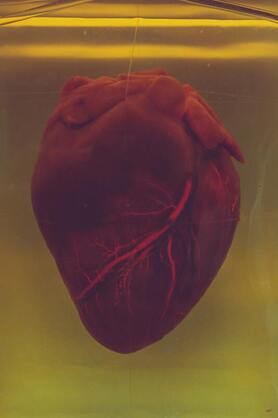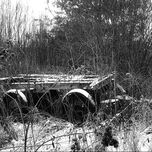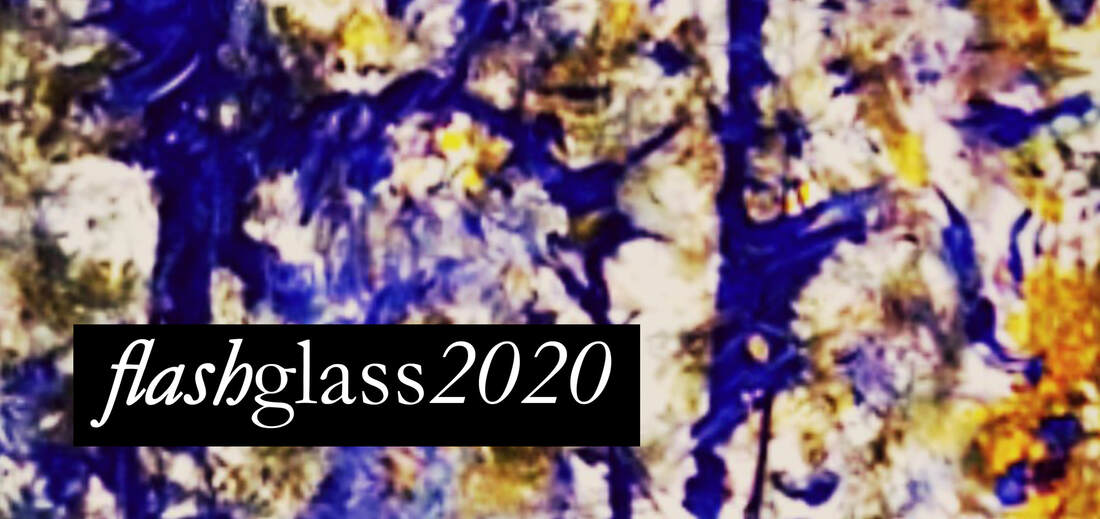 Once there was a girl whose heart stopped beating. It stopped on a Tuesday. Three in the afternoon. No one noticed, so at first she said nothing. Assumed it was fine. She had a check-up on Thursday anyway, no need to panic. The doctor told her, “Eat more vegetables. Green ones. Hearts need greens to grow.” The girl did not want her heart to grow, she wanted it to beat because her fingers were growing cold. Cold like green left in the refrigerator for too long. Her heart was refrigerator-green. Gone. Goodbye. The girl wore coats and mittens because her heart had stopped. Must keep the blood warm, the doctor said. The girl had to carry a sign that read; My heart has stopped. People saw it and let her onto the bus first. Off the bus first. Parking spots with blue lines. “Get a dog,” her mother said. Her mother liked dogs. The girl did not need a dog. She got one anyway. It licked her cold fingers once and cringed. On their first walk together, the dog ran away. It was a Sunday. “Get some exercise,” her father said. Her father liked running. The girl did not. She bought running shoes anyway. The shoes pinched the backs of her heels until they were raw and red but she did not bleed. She couldn’t anymore. The doctor stopped picking up her calls. “Talk to someone,” her sister said. There were flyers for groups. Lots of groups, one for everything. The girl did not need a group. She needed warmth. It was hard to remember how it used to feel when she had a heart. The girl went to a group. The group met in a large room. The walls were painted refrigerator-green. There were chairs. No one sat in them. There were drinks. No one drank them. Everyone had a sign. My fingers have stopped. My lungs have stopped. My eyes have stopped. Oh, the girl thought. It’s all of us. Christina Trujillo is a graduate of the Sarah Lawrence College MFA program. Her work has been published in Dark Phrases and through Dynamite Entertainment. When Christina is not writing, she works at UC Riverside as the Coordinator of the Graduate Writing Center, where she supports students with their academic and creative writing.
0 Comments
 Over the years, he’s gotten pretty good at pushing up that boulder, every time a little easier until it becomes like air going up and relief when it goes back down. It’s predictable, a stroll, no longer a challenge. (not quite the torture the gods dreamed up for him) so Sisyphus takes up golf. He breaks apart that boulder into small round rocks and he uses the hill to practice his swing. Doesn’t have to worry about fetching them, because they always come right back down anyways. And there he goes, still swinging today, nothing but form on his mind. It’s now an elegant kind of torture: frustration of caring. Who knows, maybe one or many eternities later he’ll go insane. Either way, one must imagine Sisyphus in plaid shorts and a polka dot tie and an awful top your father would wear — and yes sure, happy. Maybe even happier.  Angie Kang is an artist and writer living in Providence, Rhode Island. Her writing has been published or is forthcoming in Narrative, Lunch Ticket, Hobart, 5×5, and others. Find more of her work at www.angiekang.net.  and a chamber trio performing in a church, which is by no means unusual. In the same space there is also a man sleeping. His face is tilted upwards, angled towards the wooden rafters, a framed image of devout rapture if not for his snoring. This wouldn’t be all together unusual either, except that it’s the pianist and he is very still. Though resting on the keys, his hands have stopped moving entirely. Again, if not for the snoring, the audience would all be very concerned: for the time being, they are only mildly annoyed. They still get what they came for — both the cellist and violinist continue on as if they’ve practiced like this for weeks, and for all we know, they have. Without the piano’s undercurrent of rhythm, the strings hobble along towards the finale, their determination filling most limping gaps, reverberant snoring filling the rest. When the piece is over, the pianist’s slumped form rises to the sound of clapping, bows to accept his undeserved portion of the applause. Well, who’s to say what he can or can’t claim? Here, in his own house, God stays silent, while through the broken window, the cicadas are screaming their approval.  Angie Kang is an artist and writer living in Providence, Rhode Island. Her writing has been published or is forthcoming in Narrative, Lunch Ticket, Hobart, 5×5, and others. Find more of her work at www.angiekang.net.  Morton knows his mother will forget what he tells her. “It rained last night,” he’ll say. Then they’ll watch television for a while, the news or a British comedy. His mother will look out the window. “Did it rain last night?” she’ll ask. “Yes,” he’ll say. “Good,” she’ll say, “we need the rain.” After putting his mother to bed, Morton will change the channel on the television to something he wants to watch. A baseball game. A documentary about army medics in combat zones. He’ll marvel at what other people can do. He’ll imagine hitting a fastball into the upper deck, suturing chest wounds with shrapnel flying overhead. He’ll fall asleep on the couch. In the morning, Morton will fix his mother breakfast, two pieces of toast with apricot jam and the crust trimmed off, the way she likes it. “Thank you,” she’ll say. At lunch, she’ll say she’s hungry, that she hasn’t eaten all day. “You had toast for breakfast,” Morton will say, “like always.” “Like always?” “Like always.” “I like toast,” she’ll say. “I know you do.” “With apricot jam.” “I know you do.” They’ll play double solitaire in the afternoon. Morton’s mother will complain about the heat and Morton will lower the blinds over the west-facing windows. “That’s better,” his mother will say. Between games, she’ll ask about Morton’s job. He’d been a custodian at the hospital, changing sheets, taking used syringes and surgical gloves to the incinerator. He’d lost the job months ago. He’ll tell her again. “I don’t have a job.” “You don’t?” “I don’t.” “That’s disappointing.” The next day, when she asks about his job, he tells her he’s a doctor. “I save people from terrible diseases,” he says. “That’s wonderful,” his mother says. She smiles. “I’m so proud of you.” Maybe she’ll remember until tomorrow. Morton imagines her smiling until then, when he’ll tell her again. Scott Ragland has an MFA in Creative Writing (fiction) from UNC Greensboro. Before taking a writing hiatus, he had several stories published, most notably in Writers’ Forum, Beloit Fiction Journal, and The Quarterly. More recently, his work has appeared in Ambit, The Common (online), Fiction International, Cherry Tree, and CutBank (online), among others.
 I am thinking about tin turning to dust in the snow. I am thinking about that young French soldier, on Napoleon’s doomed march, with his chapped skin and shaking fingers. How, when going to do up his coat one morning, he found nothing there. How he would pull, and grasp, and nearly tear the fabric into a frenzied shred with his panic. How something he had never known was now known, now unknowable. How all that was standing between him and a frozen death were tiny circles of hammered metal. "Maybe God has singled me out," he thinks with his dread and resolve. But then another man rises, and another, and not a button to be found among them. And that young French soldier realizing that they are all going to die in this white terror of a country. He had a moment to be alone with his death before it came for him, and none of these other men had such a luxury and a torture. Did it make him better, later? Being alone when the universe had a hole blown through it? Or was he haunted by the waiting, waiting, waiting for another voice. “Where are they? Where have they gone? How could they possibly be gone?” I'm thinking about this, standing alone outside a hospice in January. It's snowing very softly. My mother is dead. I'm waiting for my father to come outside. Juliann Shepherd is in her last semester at Ohio University, pursuing a degree in English with a concentration in Creative-Writing. Her work can also be found in Polaris magazine and Words Dance website. Although she frequently can be found performing spoken word for her house plants, they have declined to comment on it's quality.
Faded wood chips slide between her fingers as Emma pulls the dead peony’s bulb from the ground. She wants to move it. She needs to move it. Partially because it is her favorite flower. Mostly because she’d moved it four times in the past four years, always on the same day. This year the blooms lasted a full ten days and she kept them inside on the mantle with the dead ones. Today is the day she dug it up and placed it somewhere new because next year, it would bloom again. She doesn’t know where it belongs, so she starts digging, looking for the best soil. Her hand shovel pierces the ground and removes the dirt until she sees something. It looks like paper. ~ Seven years earlier, in the same spot, a boy knelt in the garden and began to dig. Behind him, the sliding door opened and his mother shouted that it was time for dinner. He said he was coming and filled in the hole. ~
~ Five years earlier, in the same spot, a man knelt in the garden, removed his watch, and began to dig. Behind him, the sliding door opened and his wife shouted that it was time for dinner. He asked her if she knew that peonies were supposed to last for one hundred years. She said she didn’t. It’ll be here long after we’re gone, he said. All she could do was smile and say that the food was getting cold. He said he was coming and filled in the hole around the beautiful flower he said would last a century. ~ Emma raises the watch to her ear, listening to it tick. Behind the dirt-covered faceplate, the thinnest hand clicks as it moved. Tears reform and drip down her face as she flips it over and looks at the engraving on the back. Gently, she rubs her thumb against the words, feeling the tiny cuts graze across her fingertip. “Love is temporary and yet eternal.” She thinks to herself just like a peony, and plants it there. A.J. Ferguson is a published poet, playwright, and fiction writer who teaches creative writing in Oklahoma City, OK where he lives with his wife and children.
 “It’s just what I always wanted,” you say, proud and grateful when your daddy plants the small oil can in your hands, even if to yourself you wonder what it is for. “Thank you, daddy,” you give him a hug, so happy to be close to the man you love, back from work in his short-sleeved white shirt and dark trousers, pens you covet peeking from his breast pocket. Soon you will go swimming together and what does it matter what he gives you. You have him. He cannot stop smiling, giggling even as he gazes down at you holding the mysterious can of oil. He says, “close your eyes,” which you do, and stretch out your arms as he also asks you to do. Something hard falls into them. Your eyes open-- a rectangular box, unwrapped so you already know what it is—inside, a key attached to a red ribbon. Your dad holds it up as he meets your gaze. “Do you know how to use this?” You nod, but your dad shows you anyway, turning the metal rods at the sides of your skates, loosening them, before placing the ribbon with the key around your neck. “This is where you keep it.” You tell him you will never lose it as he crouches to help you slip on and tighten your skates, securing them around your sneakers with the half moon tips. You are so excited you can barely wait to step out the door, tap, tap, tap, tap, and be seen in your brand new skates, sailing down the driveway, over the speed bumps, away, away. Your dad helps you balance coming down the front steps. “And off you go,” he says. It is your birthday. Your hair flies wild. Your knees strain, arms swing wide, mouth stretching, unhinged with joy. But before you have rounded the corner and can see the sea where you both swim every day, you realize what this means. You will have to choose between being with your dad, being lifted high and placed on his shoulders then on his back so you can both surf waves back to shore. Or you can sail these streets alone on your brand new skates. The first on the block to own any skates, you figure your dad would want you to be a big girl, which means being on your own. Which means going on and on and on, further and further away from the dad you love, your father, who has today given you the gift of no choices.
|
FLASH GLASS: A MONTHLY PUBLICATION OF FLASH FICTION, PROSE POETRY, & MICRO ESSAYS
Categories
All
COVER IMAGe:"Ice Crystals"
|
|
Glassworks is a publication of Rowan University's Master of Arts in Writing 260 Victoria Street • Glassboro, New Jersey 08028 [email protected] |
All Content on this Site (c) 2024 Glassworks
|




 RSS Feed
RSS Feed
